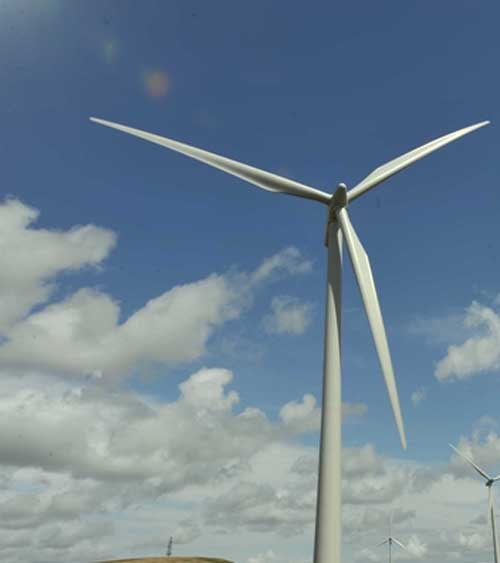New PwC analysis has revealed that Scotland’s energy sector has a critical role to play in helping meet the emerging green energy skills gap – with the creation of green jobs related to energy transition north of the border more than one-and-a-half times the national average.
The Energy Transition and Jobs – a research paper that builds on PwC’s Green Jobs Barometer – notes that a total of 2.3% of all opportunities advertised in the sector in Scotland throughout 2021 were classed as ‘green jobs’, compared with the UK average of 1.6%.

PwC’s paper also highlights a UK-wide shortage of skilled labour – with a green energy skills gap of around 200,000 people – that cannot be addressed from the existing UK energy sector workforce alone.
While the original Green Jobs Barometer warned that Scotland would be most impacted by the loss of ‘sunset jobs’ to the green transition (9.4% by 2030, compared with the UK average of 8.3%), PwC’s latest paper highlights that the majority of jobs forecast to be created in order to build the net zero energy workforce* and facilitate the transition to green energy via offshore wind and nuclear**, will be primarily based north of the border – in particular across the north east.
While the analysis shows that net job losses will be minimal, given that energy workers have the right transferable skills for green jobs, it also highlights that a lack of investment in reskilling – coupled with a 20% retiring pool by 2032 – will create a shortfall to meet the demand for skills.
Should Scotland attract the estimated £17 billion investment in renewables required for the north east to reach Global Energy Hub status, the transition would lead to a 20% increase in the region’s offshore energy workforce, to 54,000 people by 2030. Conversely, slow progress and a consequential regional decline would see a loss of 17,000 workers lost by 2030***.
Jason Higgs, ESG and Energy Transition Leader for PwC Scotland, said: “Scotland, along with the rest of the UK, is facing a continuous rise in the demand for electricity which must be met with a huge increase in low carbon energy generation, new ways of working and a more efficient whole system approach.
“While we are in a unique position north of the border, with a strong concentration of green jobs connected to the growth of offshore wind, hydrogen and carbon capture – and the potential to create a Global Energy Hub in the north east – there is a real need for investment and the creation of a diverse pipeline of talented and skilled individuals to help Scotland capitalise on its position.
“Reaching the position of Global Energy Hub would result in a significant change in the composition of the future workforce in Scotland, with our most recent Green Jobs Barometer findings indicating a 3.5 per cent rise in green job creation in the electricity and gas sector between 2020 and 2021.
“However, we need Government and industry to work together to not only secure the significant investment needed to support a just transition, which includes growing the new skills and capabilities of the future, diverse workforce at scale.”
Martin Cowie, Market Senior Partner in Aberdeen for PwC Scotland, added: “This analysis is the latest step in our journey following COP26, and the convening of key players in the energy sector – among others – at our first Green Jobs Barometer event in Aberdeen earlier this year.
“Our ‘deep dive’ into the energy sector and its potential to place Scotland, particularly the North East, at the forefront of a just transition, builds on those roundtable discussions. It also brings to life the need for investment in the sector, as well as the reskilling of the existing workforce to achieve Scotland’s Net Zero ambitions.”
PwC’s latest research includes consultation with key UK energy sector stakeholders across oil & gas, renewables and nuclear power.
